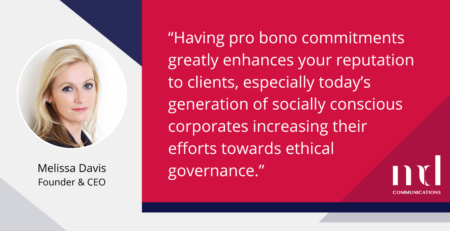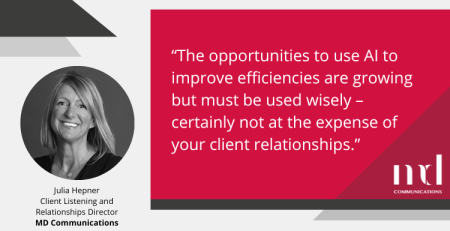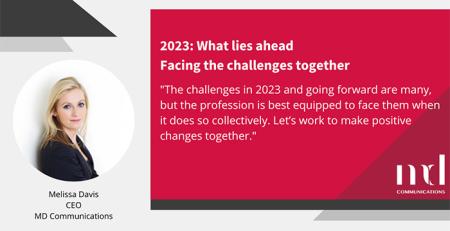CEO Melissa Davis discusses the themes covered in our most recent webinar, which focused on perfectionism and shame and the impact this has on mental health in the legal sector.
Our new blog series was created to address the parlous state of mental health in the legal sector. With the first in the series examining vulnerability and resilience, we turned to a look at perfectionism and shame for the second.
Featuring Jeff Davis, Legal Counsel at the Ontario Teachers’ Pension Plan and advocate for vulnerability, Elizabeth Rimmer, CEO of LawCare, who sits with me on the IBA’s mental wellbeing committee, and Andy Ramage, co-founder of One Year No Beer, the webinar considered the wellbeing support offered by employers in the legal sector and the issues inherent in the culture in general, which can lead to shame, perfectionism, and addiction.
Perfectionism and the fear of mistakes
Jeff, who was also a panelist on our first webinar, kicked off with an explanation of the different types of perfectionism and noted that it “comes from place of fear around making mistakes – but being human is making mistakes” and that it leads to unhealthy behaviours.
Discussing how lawyers are able to carry out work with high stakes without resorting to perfectionism, we decided that people can be great lawyers but also flawed, and that it is important to accept that mistakes will be made – this doesn’t mean you’re not successful or worthy. Elizabeth thought that a culture of fear exists in the profession around admitting mistakes as it can be seen as a career limiting step. She noted that “people want an environment that feels psychologically safe – an analogy is that cars have bumpers, pencils have erasers, and human beings make mistakes. We learn more from the things that go badly wrong than the things that go well.”
The first poll revealed that 87% of the audience considered that the pressure to appear perfect made it hard to be kind to yourself from a mental health perspective. Elizabeth was not surprised: “lawyers see those issues as sign of weakness,” she said. On how to improve this, she suggested training early on within legal education, plus senior lawyers being willing to discuss their mistakes to help junior lawyers, with an open culture similar to the airline industry where there is an open investigation every time there is an incident – this is why flying is so safe. Hiding mistakes is not only damaging to the individual but also presents a risk to the firm, to the profession, and to standards for the sector across the board.
Perfectionism and shame
Jeff explained that the perfectionist mindset is all about shame and needing the approval of others. When mistakes are discussed and accepted, this fear stops. We need to move to a growth mindset where people can innovate and trust each other, this is the recipe for top performance – rather than the discussion of mental health being a ‘nice to have’, it is a business imperative.
Another poll looked at people’s reactions to stress, with a small majority doing exercise (35%), while drinking alcohol and throwing yourself into work came out almost equal (26% and 28%). Only 12% of people said they would ask for help.
On the use of alcohol in the industry to do business and help form connections, Andy noted that while it helps people destress and relax, it is a maladaptive tool for coping. He studied positive psychology and found that contrary to popular belief, when wellbeing is improved, you are more likely to be successful, rather than the other way around – this disabuses us of the notion, “when I reach a certain pay grade, I’ll be happy”. This is an important learning for law firms.
Another poll asked whether you could talk to your line manager if you were struggling with your mental health. The majority – 59% – said yes, but that they’d worry it would have an impact on their career, and 16% didn’t think they would be able to at all. Elizabeth felt it was encouraging that 26% could talk to their manager at any time without repercussions, noting that Covid has given us opportunities to share how we are and made lawyers a bit more human.
The importance of purpose
In response to a question from the audience, the panel considered purpose and how, in effect, everyone is volunteering to do their jobs – it is purpose that pulls everything together and gives them a reason to go to work. Jeff mentioned the three qualities of top performance found in the army and in sports teams – belonging, shared vulnerability, and a sense of purpose. “If firms want to attract top talent, their purpose can’t be to make money,” he said. Andy agreed, and added that if your current job did not give you purpose, it was good to explore other avenues such as side hustles, volunteering or joining a movement.
We took a selection of questions from the audience on how to change law firm culture, cultivating mindfulness and having therapy to combat perfectionism, and balancing improvement while not straying into perfectionism. Therapy and coaching were recommended by the whole panel, as talking to a non-judgemental individual is vital for self-improvement. The ideal is to be imperfectly perfect, said Andy – doing your best is the closest we can get to perfection while still having a growth mindset. “If you reflect on your life and career, the biggest learning points almost always come from your failures rather than your successes,” he added.
Leadership and vulnerability
Rounding off, we asked how we can encourage senior leaders in law firms to address these issues. Culture plays a huge part, as revealed in the recent IBA surveys on wellbeing. Finding an ally or a supportive partner who is interested in the agenda is a good strategy, as well as running events where the senior partners, HR, and trainees all talk about their experiences – real leadership is showing vulnerability.
Training is important – less than 20% of law firms provide training for senior managers. The best way is to lobby leadership for change, while also focusing on how it has to start with those leaders themselves.
We need to acknowledge that showing vulnerability is hard, especially for leaders, but it is becoming part of their responsibility to do so, in order to help maintain the mental health of their firms, and the profession as a whole.












